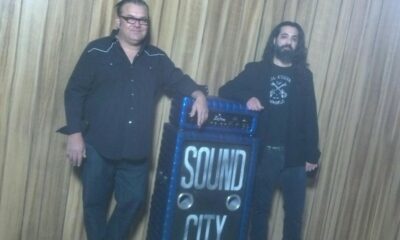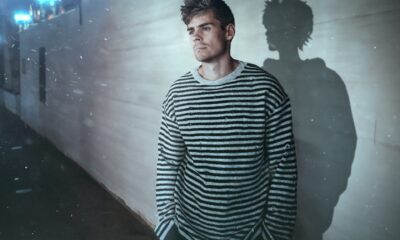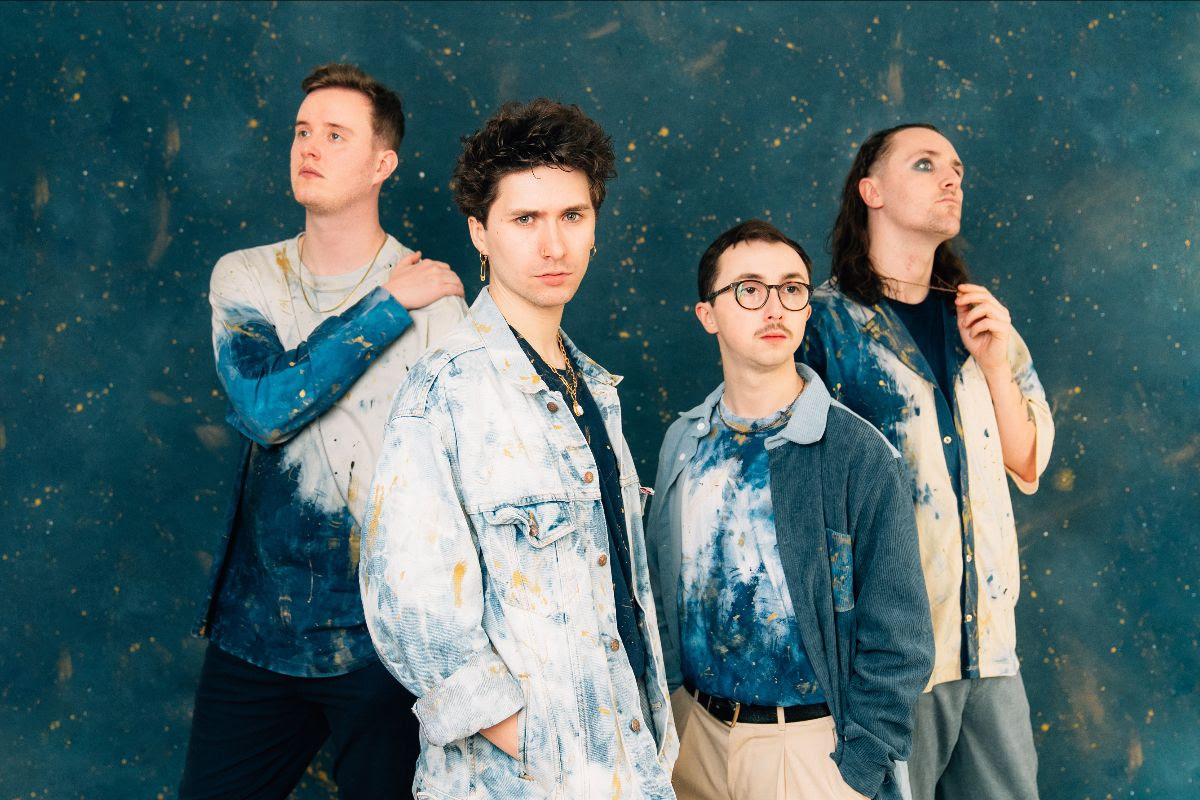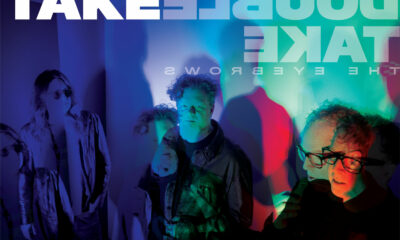Interviews
KONGOS Bassist DYLAN KONGO Discusses His Band’s YouTube Series and Amazon Prime Documentary ‘Bus Call’ [w/ Audio]
The multi-platinum, four-brother rock band known as Kongos recently released a four-hour documentary series of their lives on the road on YouTube and Amazon Prime; we spoke with bassist Dylan Kongo and got into the nitty-gritty details of the shooting process.
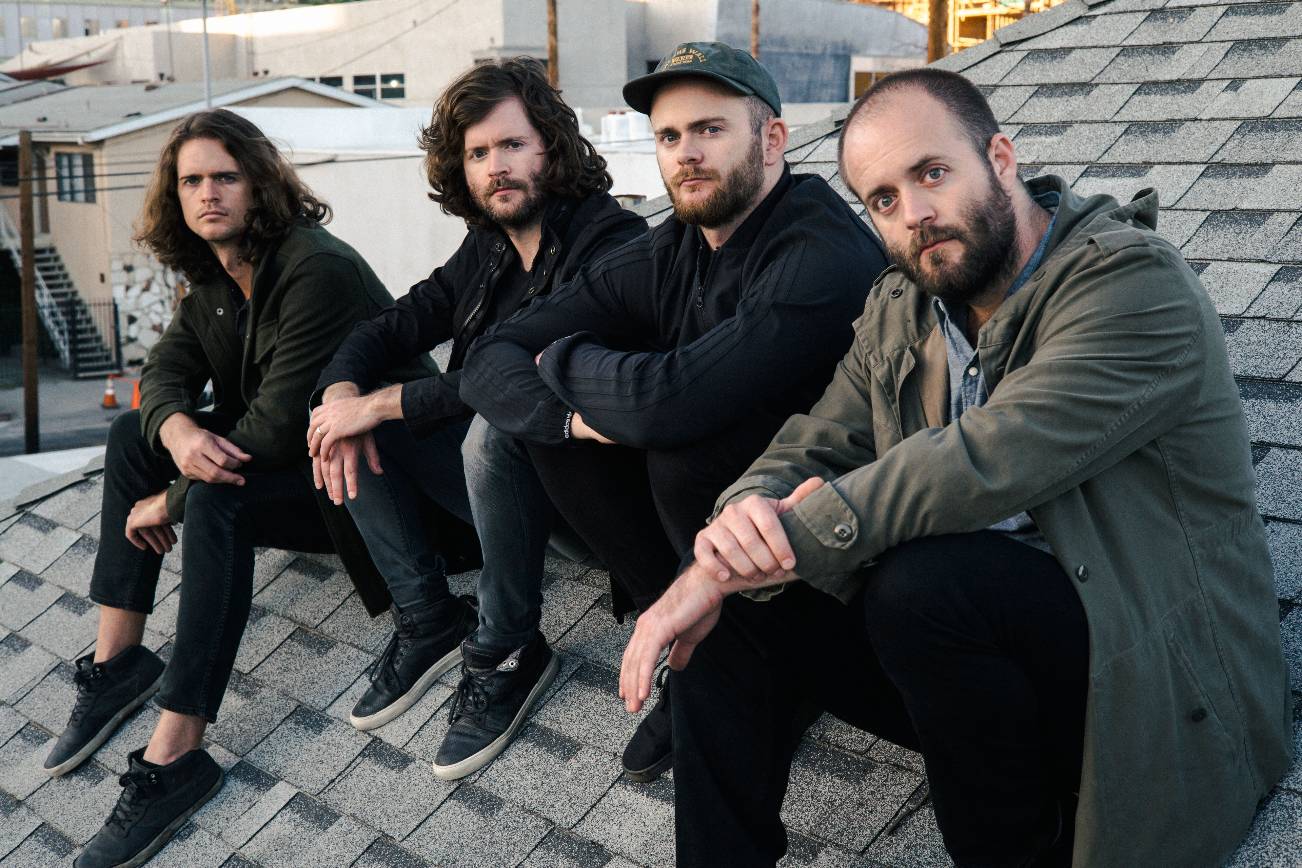
The multi-platinum Kongos, composed of four brothers, have been conquering global festival circuits while bringing their music to the world. They’ve had their music featured in both film and television soundtracks, and their single, “Come With Me Now” is all over the internet and the radio, but they recently released their most ambitious project yet. This year the group released ‘Bus Call,’ a four-hour documentary series of their lives on the road compiled from footage over the last four years. You can stream the series in half-hour episodes on YouTube and Amazon Prime.
We recently had the privilege of chatting with Dylan Kongo about growing up in a musical family, touring with his brothers, and creating a new family with their crew. Other points of discussion include life on the road, coming together as artists even when things are falling apart, and managing to get it all on camera for the world to see. Head below for this interesting conversation and/or follow along with the audio version on SoundCloud.
The very first question I had was, after having so many singles be placed in soundtracks, advertisements and other things like that, and seeing that people were trying to capture or give something a cinematic quality, whether it be film or TV, have you guys ever seriously considered scoring a film or something like that?
Dylan Kongo: “Yeah, definitely, that’s something that interests us for sure. Johnny, the oldest brother, has actually scored a couple of short films for a friend of ours from Canada, in Vancouver, who just put out his first feature. We scored all of Bus Call with all the songs from 1929 and all the other albums. All the incidentals music, it’s definitely something of interest to us. It’s about when the right opportunity comes that we’ll be pursuing that.”
Released back in 2012, check out the music video for “Come With Me Now:”
Yeah, of course, and the next question I had was since you guys are so tight and all grew up together, how do you think that natural bond reflects the intrinsic and inherent in the music? In the sense that it would obviously never sound the same if you guys were playing with other people. And what inherent advantages does that have when it comes to songwriting? Let alone, when it comes to touring and being in such close quarters together.
Kongo: “We obviously don’t much different because we’ve been in this band for so long. The two older brothers were in jazz combo bands in college, that was fifteen or twenty years ago, but we’ve been in this for so long that it’s kind of the only moving forward. It definitely has that 99 percent positive and probably that one percent negative where you get too on top of each other and probably get on each other’s nerves. And having brothers fighting gets a little bit more extreme, but other than that, playing together, I think there’s a natural, or it’s natural playing together because we are brothers, or we’ve been playing for so long, we lock up. We’re very in sync when it comes to our timing, our rhythm, and even our songwriting. We’re on the same page and we’ve kind of been on the same page for a long time.”
Absolutely, and so where did the origins of Bus Call begin? Was that just a complete DIY project that you pitched to AmazonOr was that something you slowly accumulated that came together on its own? Or is it something you guys just dived into full-on and were like, ‘We’ll figure out who we’re going to pitch it to or where we’re going to put this later?”
Kongo: “Yeah, it kind of started out more like that. We initially had the idea of filming kind of a late-night type travel show, where we were going to try to capture what it’s like after the show’s over and you’ve got these couple of hours to kill before the bus leaves. Going out to bars, checking out the nightlife, meeting friends, eating good food, and we realized we won’t really be able to do that anymore interestingly than Anthony Bourdain or any of these kind of travel show guys. So we told our videographer, we had one at the time, we were initially just trying to capture highlight stuff for Instagram, short-form content. We essentially told him, ‘Just keep the cameras rolling,’ and when we looked back on some of the footage, we realized we have something a little bit bigger, we have a bigger story to tell.”
Released in January, check out the artwork for Kongo’s fourth studio album 1929, Part 1:
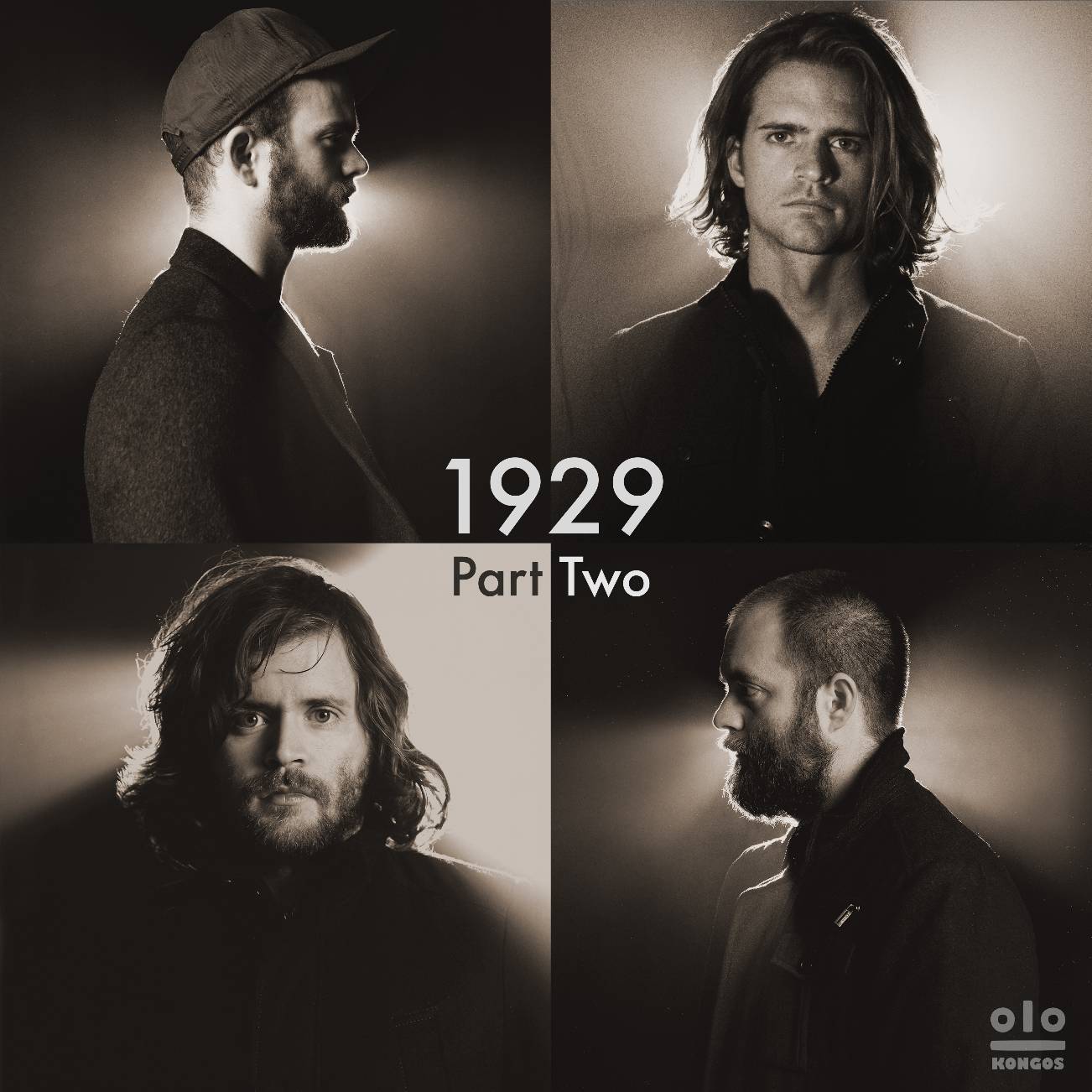
Yeah, absolutely.
Kongo: “Not just our family and our story, how growing up in a music family, but what it’s like to be on the road. Because I think most people get to see some of the polished versions or the glamorized versions of what it’s like to be on the road. Whether it’s private jets or stadium shows, taking a limo to this, and not a lot of people have seen the kind of grit and the work that goes into a medium-sized band that’s kind of grinding it out on the road. We told the camera guys for a couple of years, ‘Just keep it rolling through everything,’ and we’d just look at the footage later and the editing process was slow. But we edited one of the European episodes first and we realized we have a real show here, so it became a really big project of ours.”
Yeah, no kidding. It’s funny you mentioned that in that editing being slow, that I think it might actually be the longest music documentary on a single artist outside of a mini-series like Hip-Hop Evolution or something like that. There’s like four hours of footage in there, that’s like two feature films.
Kongo: “Yeah, we got it down pretty much as much as we could, but we were trying to fit in four years of touring, plus our story, which goes all the way back to our dad in the ‘60s and ‘70s. Once we got that side of the story told it was really more of a story about the characters. I think if people give it the time and they give the show a shot, that they’ll develop kind of a connection with all the people in the show, our road crew, everyone’s families. They’ll get a sense of, it has an emotional content to it, which will keep the audience’s interest as opposed to just seeing the mechanical day-to-day things of what it’s like to be on tour. There’s actually an emotional side to it too.”
Oh absolutely, and having that anchor the entire thing and carry the audience all the way through does not feel like reality TV. It does not feel staged or clipped together in a way where it’s like, you know, a boy band with guitars. Where it’s like, ‘And this guy is the crazy party animal dude,’ or whatever.
Kongo: (laughs)
You know?
Kongo: “Yeah.”
Check out the “Bus Call” teaser trailer here:
It’s very natural, and obviously that was a big goal and ambition from the outset and the opening of the narration. Where it’s very upfront that it’s not about red carpets, and award shows, and champagne, and Hollywood, and all that kind of stuff. And so where did you guys get the idea to kind of use this as a platform to not only expand your audience while you guys are developing a deeper connection to yourselves as artists? But to give people a real look in the face of what it’s like to be in the 21st-century music industry while building yourselves up as a band of grassroots artists instead of a one-hit-wonder or something like that? Some people get the idea that it takes ten years to be an overnight success and things like that.
Kongo: “Yeah. It was kind of after the fact when we started watching the footage back because you know, we were just living our lives basically. We got comfortable enough around the cameras that it wasn’t intrusive most of the time and we were used to it being around. So we weren’t really aware of what type of content we were capturing. Then we looked back at some of the footage, that’s when we started piecing together what the story might be. I think that there was no avoiding the downsides, well, not the downsides, but the kind of valleys of what touring life is like. We had a lot of parties, we had a lot of great crowds and great shows, but that can only hold anyone’s attention for so long.
People want to see some human element to any story, and I think we were watching one of those European episodes of footage. I think we were in Poland, and it was this bizarre, bizarre night of everyone getting drunk and us being worn out, and trying to grind through Europe. That’s the first thing we edited, but then the way the series opens up in Kansas where it’s dreary, cold, and dark. We were into about one year’s worth of touring and we were in a state where we were wondering where our career was going, and we got all of this on camera. It was funny, it has a sense of humour to it too, us trying to make our way into the venue, this Spinal Tap thing. It was all a metaphor for where we felt our career was going. We just felt that we couldn’t avoid telling that part of the story, because the excitement and glamour of it last 30 seconds and then it’s like, ‘Okay, we get the idea.’”
Yeah, well, you definitely don’t want it to be a one-note show, where it’s like a sports highlight reel or something like that. When I think it would lose a lot of the integrity of the project without giving people an honest dead-in-the-eye look at the day-to-day that goes into it, right?
Kongo: “Yeah, we were interested in making a TV show than making a highlight reel for us or a documentary about us. Like, obviously it’s going to be our story, but we were really interested in, ‘Can we get people who may not even know our music, but if they do know our music and they may not like it, can we get those people to enjoy watching the show.’ And I think we did our best at that, and that was kind of our goal.”
Released last year, watch the most-recently released video from Kongos for “Everything Must Go”:
Well, yeah, absolutely, the next thing I was going to ask is that do you find now that you’ve released all of this footage into a cohesive, fine-tuned narrative, instead of a bunch of goofy home videos, that it’s helped you develop a deeper connection with your audience? Since you’re able to gain an interactive, back-and-forth, communicative relationship with them, since it’s on YouTube and Amazon Prime, and everything?
Kongo: “Yeah, I think so. We’re still kind of struggling to get the word out there about it. We’ve got hardcore fans that show up to our VIP experiences, and they know all of our music, they come to every show. It’s cutting through the noise of social media and everything out there, so we’re still trying to get the word to a lot of fans who haven’t seen it. But the ones who have seen it, have become die-hard fans because they knew the music before, but now they know the story.
Now they know what it’s like to be out on the road, they feel part of the struggle and part of the family almost. We’ve had some funny interactions with fans that have seen the show, they really feel apart of it. Even connected to our crew. Our monitor engineer was at a show in Nashville and was like, ‘Hey, I think I know you. Are you in, Bus Call?,’ and he was just blown away by the fact that they recognized him from the (TV) show, you know?”
Well, it’s funny how putting that kind of element can introduce a different dimension on to the music, and it’s obviously got to be nice for you guys to be able to cut through any kind of issues of perception. Whether it be through the whole cliché rock star, band-in-a-van type stuff and be able to really connect with you on that human-level instead of putting you on a pedestal because of being musicians, right?
Kongo: “Yeah, I think so. For us and also for the crew. We have friends that know us very well and know our crew very well, but they still don’t know what the life is like. A lot of time, especially to our crew members, they’ll be like, ‘Oh man, you’ve got the best job in the world,’ which it is. It’s an amazing job, you get to travel the world in a rock band, but when they see the footage of these 16, 18 hour days, no sleep. We’re loading into a venue and the pay-off is trying to make an audience excited or make an audience happy with your show, everyone, including the people that are even closest to us who haven’t been on the road, get a real sense of it. That’s kind of one of the special parts about it.”
Time for the “Bus Call”:
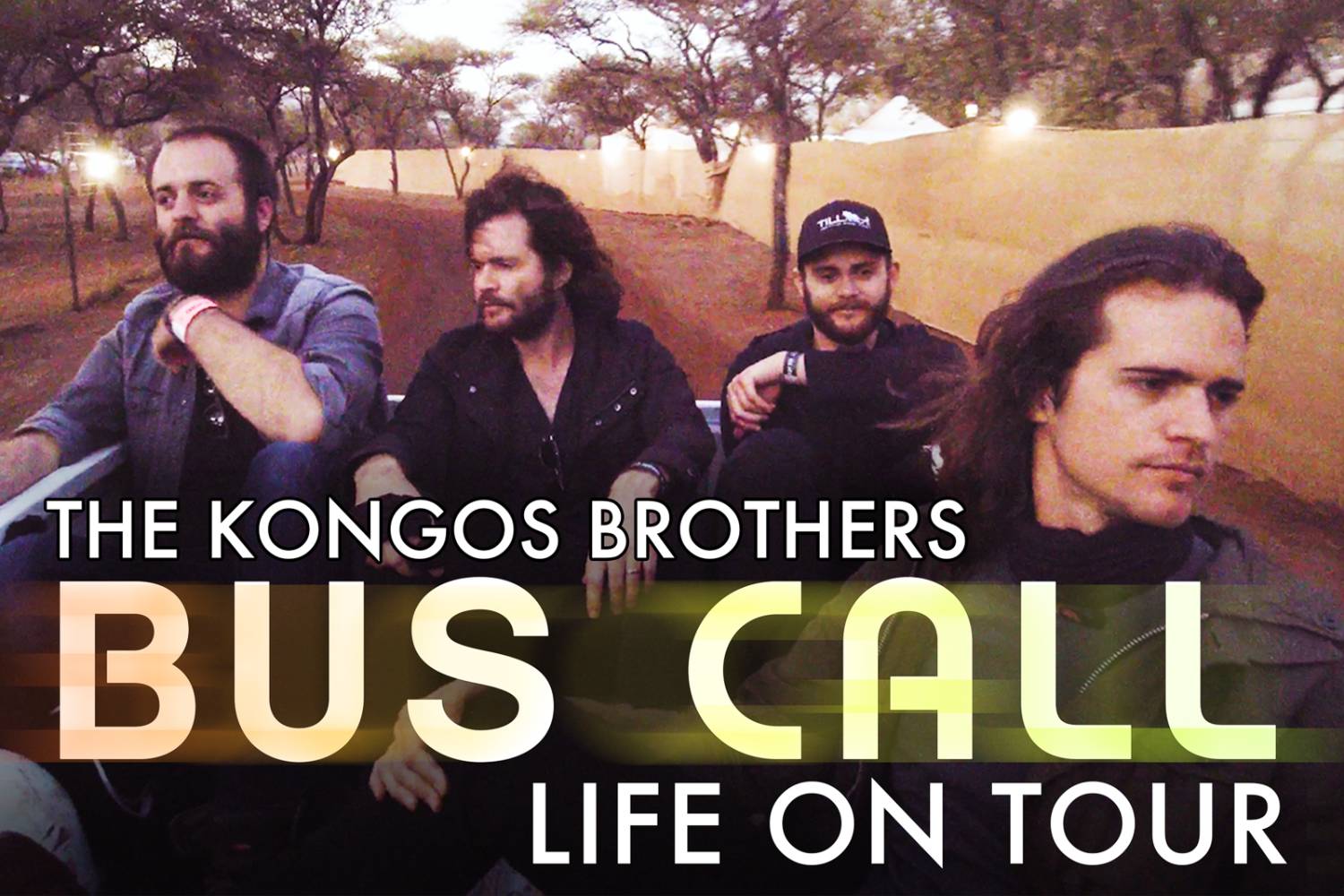
Oh yeah, well it (the TV series) is definitely grounded in a very firm sense of reality. Like, yeah, they see the big festival dates when you guys are playing to tens or hundreds of thousands of people, but they don’t see all the missed birthday parties and everything else that goes along with the whole ball of wax.
Kongo: “Yeah, and wives and girlfriends that are at home waiting, for weeks and months on end for their husband to return, so yeah. We’re proud of it (the TV series), it is, especially with the incorporation of all the music, it’s also got some songs on it that haven’t been released yet that will be released on part three. It’s definitely one of the biggest projects we’ve ever taken on and something that we’re proud of. So even if the footage dates back, sometimes to 2016, we’re going to keep pushing it and try to get the word out there. We feel like it deserves the attention.”
Yeah, I think another interesting aspect of it is that I think it’ll make a hell of a diary of the members of the band and for the members of the crew that have kids. Whenever they manage to grow up, and are like, “Well, how come Dad didn’t come to parent-teacher night?” “Well, because THIS is what my life is like.”
Kongo: “Exactly. Jesse, the drummer in our band, has a kid and we were thinking about that. She’s only two, but in a few more years when she starts to understand what we do, she’ll be able to watch and understand, and see exactly what her dad does.”
Well, yeah, and hopefully be able to build a deeper relationship and connection with each other because of that. Instead of, “Dad’s not here because he doesn’t feel like it,” or, “He’s JUST at work,” or whatever.
Kongo: “Yeah, yeah, exactly.”
Off of the album Egomaniac why not check out the music video for “Take It From Me:”
But yeah, the last question I had was, do you guys think you’d want to try something as ambitious as this again and try turning it into an ongoing series or something like that down the road in order to be able to not only build a deeper connection like that with your family but with your friends as well? Because you don’t really see a lot of artists do a lot of stuff like this and instead of it just being 30 second Instagram stories, it has a real shelf-life, it has a real-life on streaming platforms that people love, and hopefully will be able to be a lot more viable over the years because of that.
Kongo: “Yeah, in our minds, we definitely have ideas about that, and we’d love to be able to expand on it. In reality, I’m not sure we’ll be able to, just because it was so expensive.”
Oh, I bet.
Kongo: “So, we had a videographer, sometimes two, out on the road with us for over two years, and then it was months and months of editing. We kind of went into the hole quite a bit on this project and it’s going to be difficult unless it picks up a lot of success, and it starts streaming really well, and someone like Amazon Prime wants another season. Then that’ll be a different story. Expanding the scope of it even, maybe it’s not just a Kongos documentary and maybe it can expand into other things. We’ve thought about it, but there’s a financial element to it.”
Oh yeah, of course. You guys should definitely think about submitting aspects of it to film festivals and being up for award season. Thanks a lot for taking the time to squeeze me into your schedule and that pretty much does it for me.
-

 Music3 days ago
Music3 days agoTake That (w/ Olly Murs) Kick Off Four-Night Leeds Stint with Hit-Laden Spectacular [Photos]
-

 Alternative/Rock4 days ago
Alternative/Rock4 days agoThe V13 Fix #010 w/ High on Fire, NOFX, My Dying Bride and more
-

 Hardcore/Punk2 weeks ago
Hardcore/Punk2 weeks agoHastings Beat Punks Kid Kapichi Vent Their Frustrations at Leeds Beckett University [Photos]
-

 Culture2 weeks ago
Culture2 weeks agoCirque Du Soleil OVO Takes Leeds Fans on a Unique, Unforgettable Journey [Photos]
-

 Alternative/Rock1 week ago
Alternative/Rock1 week agoA Rejuvenated Dream State are ‘Still Dreaming’ as They Bounce Into Manchester YES [Photos]
-

 Features3 days ago
Features3 days agoTour Diary: Gen & The Degenerates Party Their Way Across America
-

 Culture6 days ago
Culture6 days agoDan Carter & George Miller Chat Foodinati Live, Heavy Metal Charities and Pre-Gig Meals
-

 Music5 days ago
Music5 days agoReclusive Producer Stumbleine Premieres Beat-Driven New Single “Cinderhaze”

